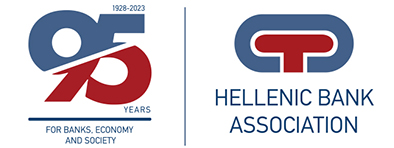Useful tips for secure online transactions
During the last years in Greece, as well as worldwide, purchases of goods and services via electronic transactions by consumers and businesses has considerably increased.
In view of the Holiday season and due to the restrictive measures taken to cope with the adverse effects of the pandemic crisis Covid-19, the Hellenic Bank Association would like to raise awareness on the following issues:
- Your bank will never ask by any means (phone, e-mail or any other means of communication) your codes. Do not reply to communications and e-mails requesting for User Name, Passwords and PIN
- Always use the most up-to-date Internet browsers (e.g. Chrome, Microsoft Edge, etc.), which ensure advanced security environment
- Make sure that your Internet browser does not automatically store User IDs and Passwords on websites you visit (e-commerce merchants, banks, social networking, etc.)
- Do not reply to e-mails asking for your personal information. Do not take any action such as opening file attachments and delete them immediately
- Do not trust links that are supposed to redirect you to your bank's 'site'. You should always type the web address yourself. Do not follow a hyperlink sent to you by e-mail or published on social media, websites of other companies, search engines, etc.
- When browsing the web, disclose your card details only to certified websites and e-commerce merchants. In case you are in doubt about your safety, avoid transactions with them. Before any use of your bank's online services, make sure you are inside its secure environment. You can identify the bank's official website from the security lock at the beginning of the website address on the search bar. After completing your transactions, log out of the bank's online services by selecting "Exit"
- If your mobile phone stops working for unusual reasons, contact your mobile operator immediately. In some cases, you may lose your signal due to wider problems affecting your mobile service. If you do not have access to your mobile operator, even though you are located in an area that usually has good signal coverage, it is safer to contact your network provider and confirm that your SIM has not been deactivated
- Subscribe to your bank's services which provide secure SMS and e-mail notifications when your transactions are executed
- Regularly check your account statements
- If you have been the victim of any type of fraud such as 'SIM Swapping', 'Tech Support Scams', 'Phishing', etc., or discovered transactions made without your approval, please inform your bank immediately
Both the Cyber Crime Division of the Hellenic Police as well as HBA member-banks share useful tips for secure electronic transactions on their websites:
https://ibank.nbg.gr/identity/security-information
https://www.piraeusbank.gr/el/idiwtes/trapezikes-ypiresies/kathimerines-synallages/prostasia-kartwn
https://www.alpha.gr/el/idiotes/support-center/asfaleia/praktikes-sumboules
https://digital.atticabank.gr/el/info/general/transaction-security








